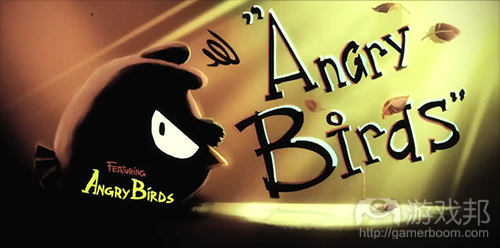芬兰赫尔辛基因手机游戏成热门创业区域
作者:Jon Jordan
《愤怒的小鸟》让手机游戏行业发生了翻天覆地的变化,其中影响最大的地区是芬兰及其首都赫尔辛基。
在诺基亚的支持下,数十年来此地一直在手机游戏领域处于领先地位,涌现出诸如Sumea、Mr Goodliving、RedLynx以及Rovio等手机游戏公司。
新的火花
现在,与社交游戏结合的智能手机生态系统的成长、风险投资热潮、政府强力支持以及新的文化信心等趋势使得这个行业再次复兴。
手机游戏开发商Sumea联合创始人Illka Paananen说道:“芬兰手机行业过去常常享受的是当雇工的乐趣。Remedy过去数年来已经出过许多优秀的游戏,如《Max Payne》,但《愤怒的小鸟》无疑是芬兰游戏行业最棒的作品。它为初创企业做了榜样。”该公司已于2004年被Digital Chocolate收购,后者仍然是赫尔辛基最大的工作室之一,目前主要关注Facebook市场。
迅猛发展
目前,该地区手机游戏行业发展迅速。
Paananen自己又创办了新公司Supercell,该公司即将发布的首款产品是名为《Gunshine》的Facebook和手机硬核-休闲游戏。而且,通过与天使投资公司Lifeline Ventures的合作,Paananen还与其他团队有着密切联系。
这些团队包括地理定位手机游戏《Shadow Cities》的开发商Grey Area和由RealNetworks旗下Mr Goodliving studio某些主要开发人员联合成立的初创公司Grand Cru。
Neogames发表的最新报告(游戏邦注:即“2010-2011芬兰游戏行业报告”)认为芬兰是游戏运营、研究和开发中心。芬兰本土有65家游戏公司,其中1/3自2009年起在游戏行业确立了自己的地位,包括2009年的10家和2010年的14家公司。
估计该行业2011年营业额将达到1.65亿欧元,与2010年的数字相比增加了57%,部分应归功于《愤怒的小鸟》。
募工态势
在此背景之下,许多在芬兰有业务的大型跨国公司显然受到了影响。Real集团于2011年初关闭了Mr Goodliving,THQ也在2010年关闭了Universomo工作室(游戏邦注:该工作室位于芬兰第三大城市坦佩雷)。很显然,诺基亚自已也遇到了问题。运营在线游戏《Habbo Hotel》的芬兰公司Sulake近期也开始裁员。
这个行业对员工雇佣的态度却时常改变。
这个行业相对较小,到2011年总员工数在1万人左右,而且大部分还是暂时性的雇员和合同工。因而这些年来,许多芬兰开发者曾为多个不同的工作室效力。其中,PC和主机游戏公司Remedy的表现尤为明显,在开发《Max Payne》系列游戏和《Alan Wake》时候招工,随后进行裁员。
RedLynx和Rovio也有类似的做法,但做的不那么明显。这两个公司都在2009年扩大业务量的时候将员工数提升至40名左右,随后开始裁员。现在,这两家公司又开始招募新员工。
成长情况
现在,赫尔辛基中每个公司互相之间都非常熟悉。以Rovio为例,该公司当然知道哪些人值得他们招募,因而许多初创公司都自诩有着经验丰富的团队。比如,Supercell由Sumea、Remedy和Sulake中某些高级成员创立,Grand Cru团队中主要是来自Mr Goodliving和Sulake的技术能手。
Grey Area有些例外,有些员工来自爱立信,但随后自称吸引了部分Mr Goodliving的技术人员。
而且更为普遍的现象是,赫尔辛基中的每个公司好似都在扩张。
其中包括Secret Exit、Mountain Sheep和Kuuasema等小型开发商,Facebook应用推广公司Applifier也于近期发布其Facebook点击链接网络的手机版本。
同时,Remedy也凭借发布的iOS经典游戏《Death Rally》(游戏邦注:这款游戏由Mountain Sheep联合开发)获得了成功,PC游戏公司Futuremark已经发布其首款手机游戏《Hungribles》,有传言称PSN游戏公司Housemarque也在设计首款手机游戏。
高需求量
由于每个公司都在成长,因而对员工的争抢也愈发激烈。
Paananen说道:“雇佣员工确实是个有点麻烦的事情。”在首轮融资募得1200万美元后,Supercell员工总数增加至35人。
然而,他认为行业应该为面临这种积极的问题感到高兴。不管怎么说,芬兰游戏行业也开始逐渐走向国际化。Digital Chocolate在某个阶段有来自32个不同国家的员工。
Paananen说道:“许多人到芬兰来工作,我们收到了大量的简历。赫尔辛基成为创立游戏公司的热门地区,人们都想要过来看看这里究竟是如何发展的。”(本文为游戏邦/gamerboom.com编译,如需转载请联系:游戏邦)
Report: Angry Birds’ effect: Why Helsinki is the hot spot for mobile start ups
Jon Jordan
Angry Birds has changed many aspects of the mobile games industry, but nowhere has its impact been felt more strongly than Finland and its capital, Helsinki; Angry Birds’ very own nest.
Thanks to support from Nokia, it’s been a leading location in mobile games for a decade or so, spawning companies such as Sumea, Mr Goodliving and RedLynx, as well as Rovio itself.
New spark
Now, it’s witnessing a resurgence on the back of trends such as the growth of smartphone ecosystems combined with social gaming, the investment funding bubble, strong government support, and a new cultural confidence.
“The Finnish mobile industry used to be happy with work for hire,” says Illka Paananen, who co-founded mobile developer Sumea, bought by Digital Chocolate in 2004, and which remains one of Helsinki’s largest studios, now mainly Facebook-focused.
“Remedy has made some great games over the years like Max Payne, but Angry Birds is definitely the greatest thing that has happened to the Finnish games industry. It’s provided a role model for new companies.”
Into flight
And there’s certainly plenty of activity at present.
Paananen himself has a new outfit, Supercell, which is close to releasing its first product, a Facebook and (eventually) mobile core-casual game called Gunshine. In addition, through his work with angel funder Lifeline Ventures, Paananen is involved with several other teams.
These include Grey Area, the creator of the location-based mobile online game Shadow Cities, and Grand Cru, a start up consisting of development leads from RealNetworks’ shuttered Mr Goodliving studio.
According to the latest report (The Finnish Games Industry 2010-2011) from Neogames, the country’s Centre of Games Business, Research and Development, there are 65 games companies in Finland, with over a third of them being established since 2009; 10 in 2009 and 14 in 2010.
Total turnover for the sector for 2011 is estimated to be €165 million, up 57 percent on 2010′s figure, thanks in part to Angry Birds.
Bands of brothers
It’s also significant in this context that many of the large multi-nationals who had operations in Finland have been scaling back. Real’s corporate woes resulted in the surprise closure of the 50-strong Mr Goodliving earlier in 2011, while THQ shut down its 50-strong Universomo studio (based in Finland’s third city Tampere) in 2010. Obviously, Nokia has its own problems, while Sulake, the Finnish company behind online service Habbo Hotel, trimmed its headcount recently too.
Combined with this is the sector’s historic swingdoor attitude to employment.
A relatively small industry – with a headcount of around 1,0000 until 2011 – and one driven by temporary expansions and contractions, over the years many Finnish developers have worked for multiple studios. In particular, PC/console outfit Remedy has played a central role, staffing up and down as it’s worked on titles such as the Max Payne series and Alan Wake.
RedLynx and Rovio have also suffered from similar, if less violent, elasticity. Both expanded to over 40 staff on the back of work for hire, before scaling back to barebone operations in 2009, then successfully refocusing on self owned, digitally distributed titles. Now, both are expanding again.
Growth spurts
The result is everyone in Helsinki seems to knows everyone else – has an opinion about Rovio, of course – and knows who they would like to work with, so many of the new wave of start ups boast highly experienced teams. For example, Supercell consists of senior ex-Sumea, Remedy and Sulake staff, while Grand Cru is mainly Mr Goodliving plus a Sulake technical lead.
Grey Area is an exception in this regard being formed by ex-Ericsson staff, but has since been boosted with refugees from Mr Goodliving (again), amongst others.
And more generally, every company in Helsinki seems to be expanding.
These include smaller developers such as Secret Exit (Zen Bound), Mountain Sheep (Minigore) and Kuuasema (Supersonic), while Facebook promotional outfit Applifier (another Lifeline Ventures investment) has just launched a mobile version of its Facebook click link network.
Meanwhile, Remedy has had been successful with the iOS release of its classic game Death Rally (co-produced by Mountain Sheep), PC benchmark company Futuremark has announced its first mobile game Hungribles, and PSN expert Housemarque (Super Stardust) is also rumoured to be working on its first mobile title.
High demand
Indeed, because everyone is expanding – Rovio’s around 100-strong, for example – competition for staff is starting to kick in.
“Yes, it’s getting a little tougher to hire people,” Paananen agrees. On the back of its first round funding of $12 million, Supercell’s headcount is already up to 35.
However, he says it’s the sort of positive problem the industry should be happy with. Anyhow, the Finnish games industry has always been international. At one stage, Digital Chocolate had 32 different nationalities on staff.
“A lot of those people have stayed in Finland, and we’re getting a lot of resumes from aboard,” Paananen argues.
“Helsinki is the hot place to start a game company. People want to come and check out what’s going on.” (Source: Pocket Gamer)
上一篇:评价移动游戏成效的几大关键要素








































 闽公网安备35020302001549号
闽公网安备35020302001549号